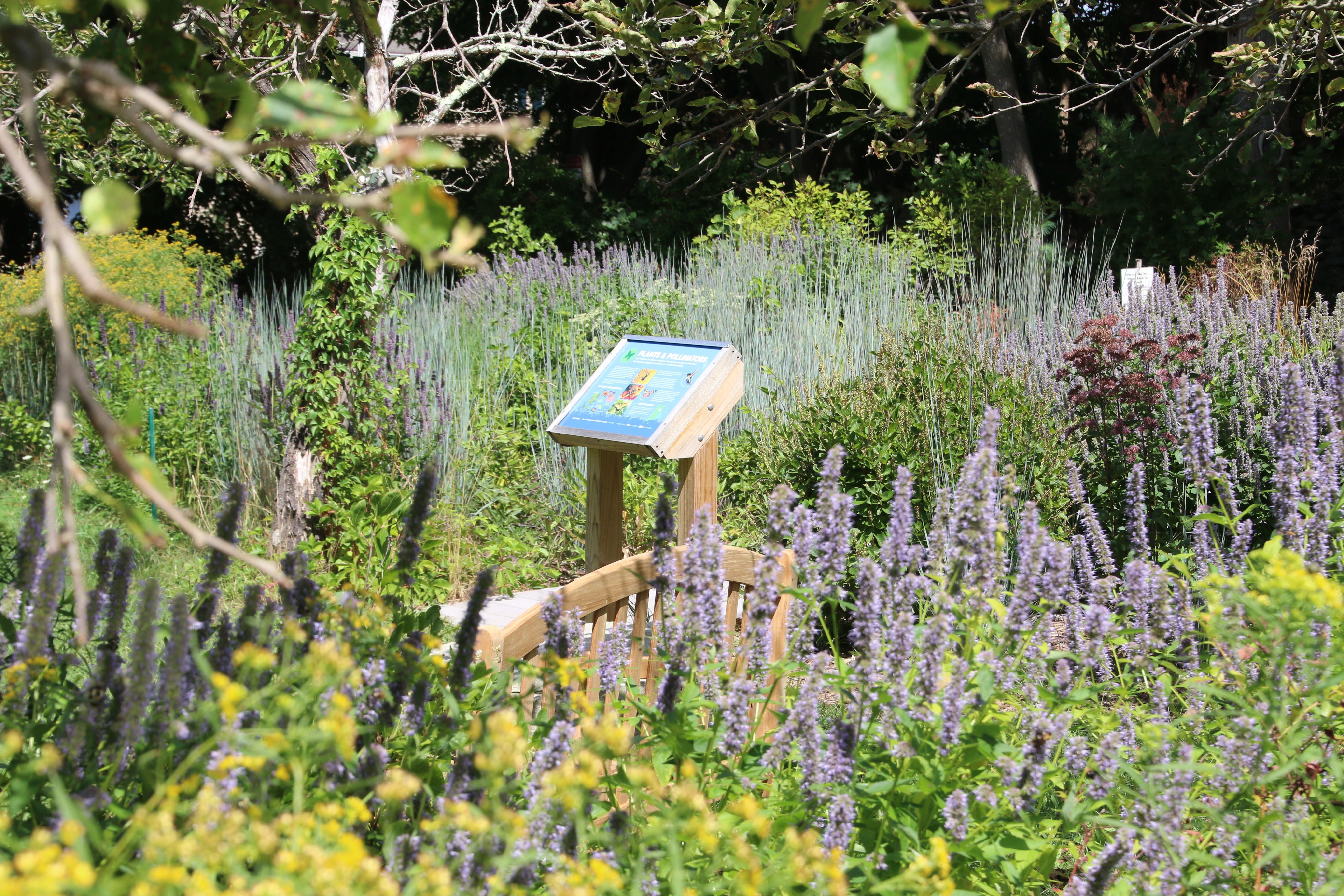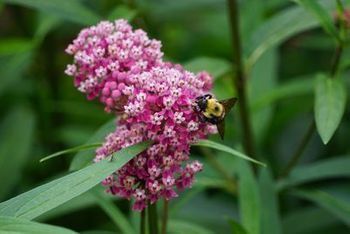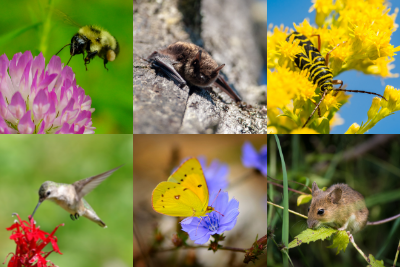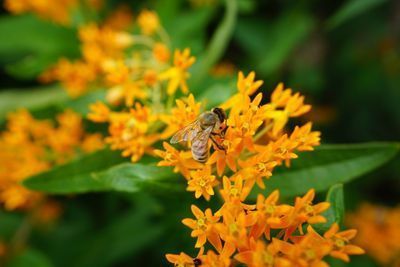The Palmieri Pollinator Garden
-
Visit the gardens at the Audubon Nature Center and Aquarium!
The Palmieri Pollinator Garden was designed to inspire homeowners to plant native perennials, trees, shrubs, and grasses that support the local ecosystem. Designed in 2019 by world-renowned landscape architect John Gwynne, the garden was developed around the existing apple trees, and features a perennial border, a wildlife pond, and an arch of “New Dawn” roses in honor of Dr. Palmieri.
-
-
Our Birdfeeder Garden, can also be found on the property. It features perennials and tall grasses that birds use to build nests and provides seed for small mammals and migrating bird species. This garden displays plants like Asters, Agastache sp, broadleaf mountain mint, and seaside goldenrod.
The gardens are tended by URI Master Gardeners and Audubon staff and volunteers. Visitors are encouraged to go searching for bugs throughout the garden. Learn and explore in the gardens while respecting the flora and fauna that call the space home!
-
“The Palmieri Pollinator Garden and pond demonstrates what we can all do in our own back yards. With native planting, less mowing, and no chemical treatments, we can 're-wild' the suburban garden area. This condensed habitat provides the food, water, shelter and space required by a diverse array of fauna, including insects, birds, aquatic life and mammals. This concentration of wildlife activity enables visitors of all ages, backgrounds and abilities to witness the colors, smells, sounds, textures and complexities of nature in a setting just steps from the Nature Center. The gardens can serve as a destination for learning and play or as an inspiration to explore the field, forest and shoreline of the refuge beyond.”
- Landscape Architect John Gwynne
Why are native plants so important?
Native plants are indigenous to the region. They evolved to thrive within the climate history of the area and have a delicately intertwined relationship with local pollinators. They are plants with a rich genetic history to pull from in the face of climate change. If carefully selected for the space, native plants require less watering and maintenance once established over traditional garden plants. Go wild!
-
-
What is a pollinator?
Pollinators play a crucial role in flowering plant reproduction and in the production of most fruits and vegetables. They include most species of bees, birds, butterflies, beetles, moths, ants, and even a number of small mammals, such as bats. Many pollinating species are at risk of or currently in decline due to pests, diseases, habitat loss, climate change, and pollution. The conservation of these species is crucial. Although it may seem like a big task, we can all help pollinating species by growing pollinator-friendly flowers, providing nest sites, avoiding pesticides, and spreading the word. Learn more here!
-
Our favorite native plants for local pollinators:
- Oak
- Maple
- Goldenrod (Solidago species)
- Joe Pye Weed, Eupatorium fistulosum
- Giant Blue Hyssop (Agastache species)
- Bee Balm, Monarda fistulosa
- Milkweed, (Asclepias tuberosa, Asclepias incarnata, Asclepias syriaca)
- Beardtongue, Penstemon digitalis
Many of these plants can be found in Audubon gardens!
-
Learn How to Create Pollinator Habitat
There are many ways you can support pollinator populations. Learn about simple actions you can take around your property to create healthier pollinator habitat and access our guide on how to create a pollinator garden, including which native plants to use. View our Guide
Join Audubon for walks and talks on plants and pollinators by checking out our calendar of upcoming programs! View the Events Calendar
“Native plants and animals are what create the ecosystem services we all require. They generate our oxygen, clean our water, and delay its journey to the salty sea. They sequester carbon that would otherwise wreak even more havoc with our climate.”
– Doug Tallamy, Entomologist
-
-
The Palmieri Pollinator Garden is maintained by community volunteers, the Audubon Society of Rhode Island staff, and further supported by volunteers with the URI Master Gardener Program. Funding is provided by the Palmieri Charitable Trust.






















